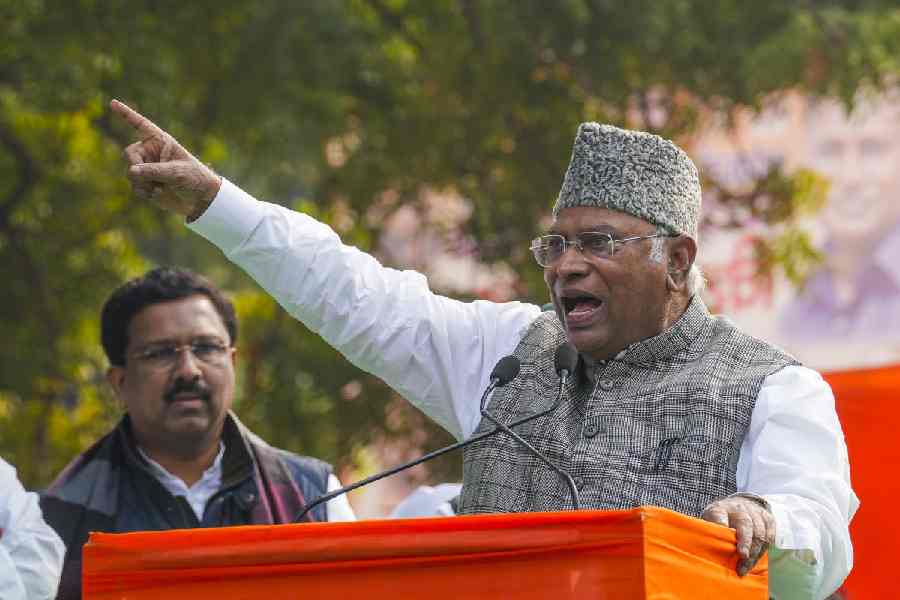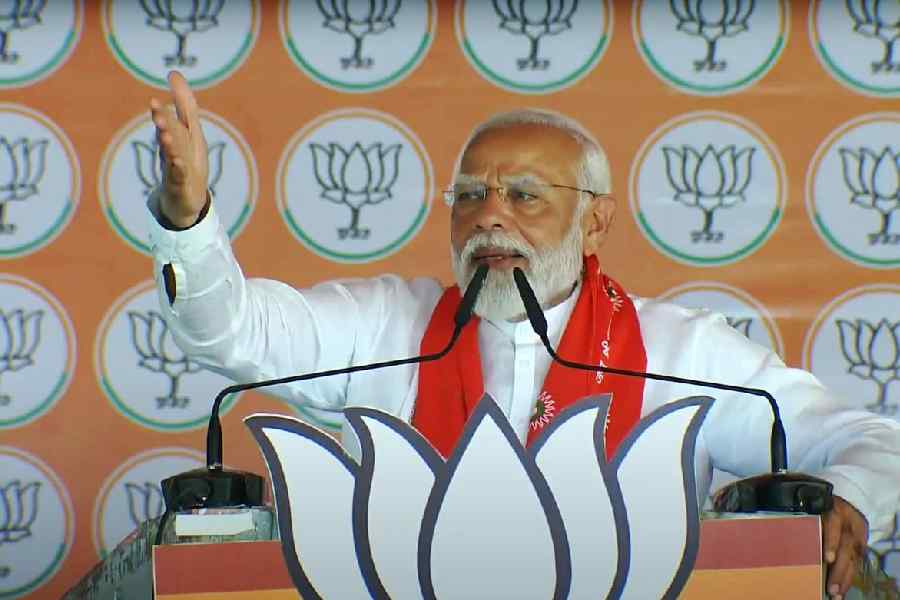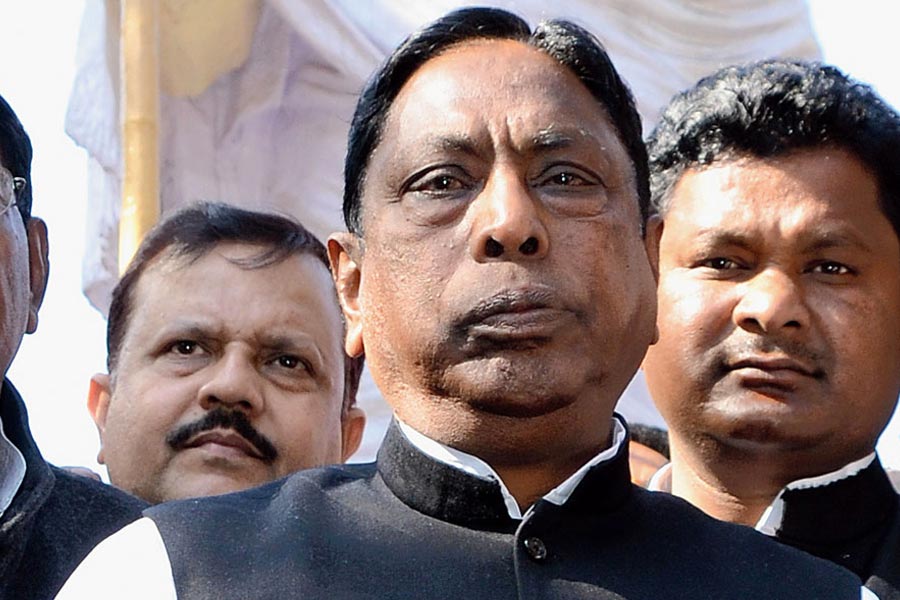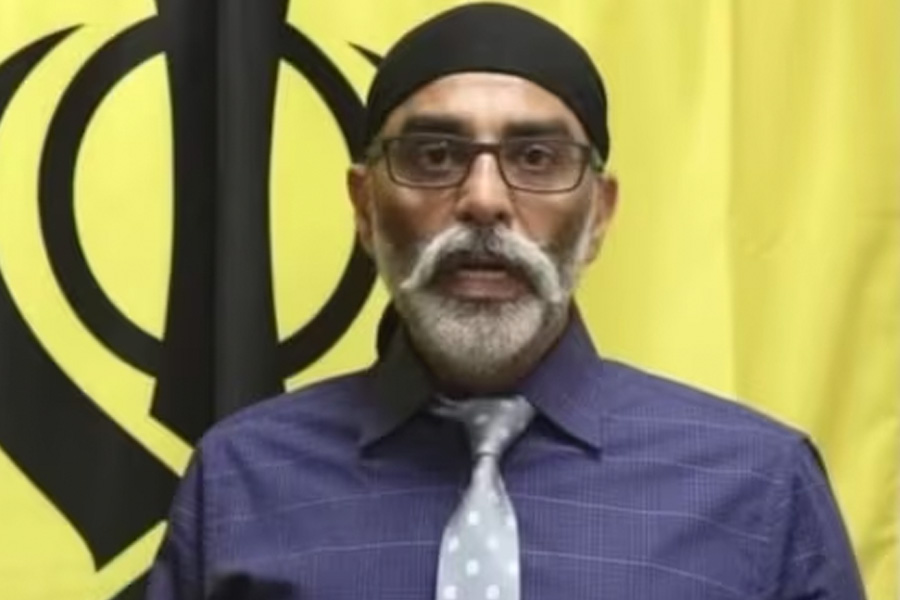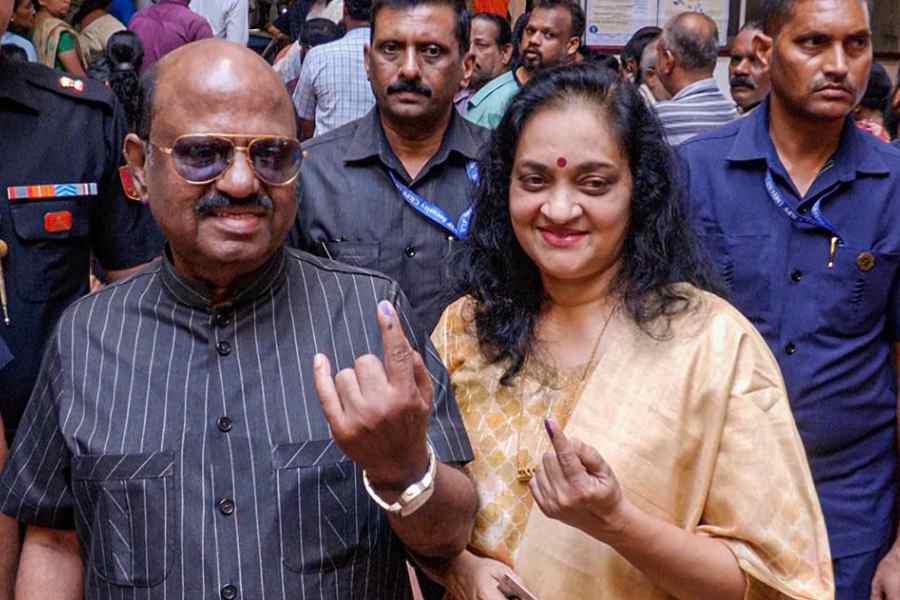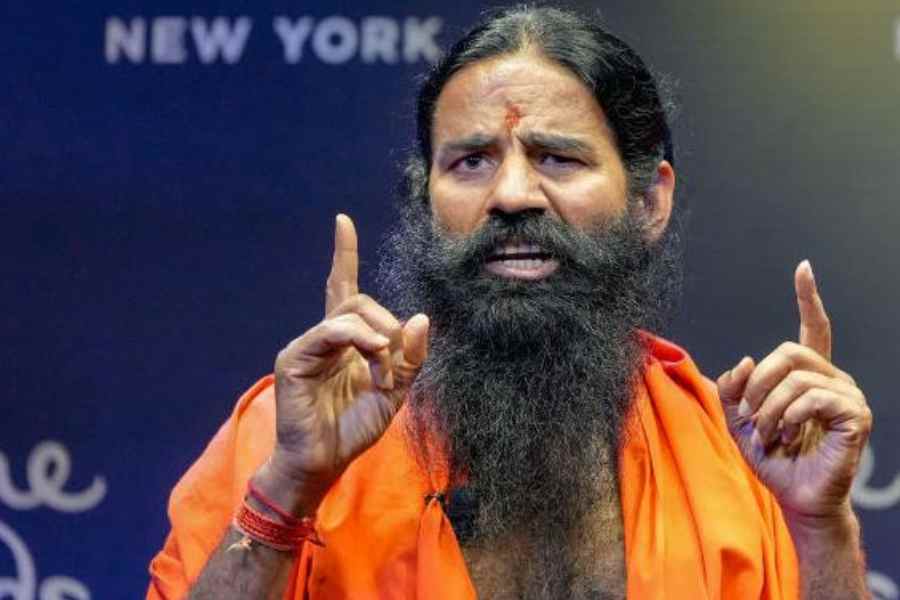.jpg)
New Delhi: Army chief Gen. Bipin Rawat has said he wants to give the newly appointed Jammu and Kashmir governor, Satya Pal Malik, time before he reveals his mind on the security strategy in the Valley afresh.
"There's a new man in charge, we want to give the new man time," Gen. Rawat told The Telegraph during an exclusive interaction.
"I do not want to fix his position by airing my views at the moment. He has to set the agenda, if I speak now people will say the army is trying to influence him or dominate the discourse. That will not be right. We have to see how he goes about it. If he can rein in terrorism, we will be most happy," the general added.
The interaction took place at the army chief's South Block offices, minus aides or minders and with no pre-requisitioned questions. As is by now his established style, Gen. Rawat took questions on the go and responded with ready candour.
"Shoot," he said, as he settled down into a Chesterfield across from the acreage of his work desk for the conversation, "I shall speak on Kashmir a little later."
Having so prefaced the issue, he engaged expansively on his Kashmir broad-frame.
He was emphatic the trouble was essentially Pakistan-inspired and promoted; he argued that Kashmiris wanted peace and were being misled and forced by guns from across the border; he tossed off azadi as a "nebulous" notion; he described the situation as "grave" and said the army was the "last resort" and engaged in the national interest each day; he strongly defended AFSPA.
"Do you think there are no terrorists there anymore? Do you think there are no guns or other arms? Do you think there are no sleeper cells? There are enough of them and we know what is happening from across the border. The pressure has to be kept up all the time," Gen. Rawat said.
Pressed on whether AFSPA was necessary - former Union home minister P. Chidambaram and former state chief minister Omar Abdullah are among those who have publicly called for its repeal - the army chief said: "Look, insurgency and terrorism are very special situations. There is a grave situation we are handling everyday. And don't forget, the army is your last resort, the nation's last resort."
He was short with the azadi call, saying "most Kashmiris do not know the meaning of azadi" and added that the turmoil was mostly Pakistan-inspired.
Asked why entire villages and neighbourhoods were turning up in defence of militants and often obstructing security operations, Gen. Rawat said: "They come out because they are being pushed by the gun, they are afraid of the gun. They don't come out on their own, they are compelled."
He agreed, though, that a lot of Kashmiri youths have become motivated by armed insurrection.
"There is a deliberate effort to indigenise terrorism, to recruit and radicalise and arm more and more boys so it can be argued that it is a local movement and not exported from across the border.... A false sense of heroism and martyrdom is being built.... What happens in heaven, this talk of a new Caliphate, nonsensical things, don't we know who is doing this?"
Gen. Rawat stoutly defended commending Major Leetul Gogoi for making a human shield of Budgam youngster Farooq Ahmed Dar apparently to protect his armed entourage from stone-pelters, but pointedly said taking human shields was not policy.
"He had to take a split-second decision and he probably saved lives by doing what he did," Gen. Rawat said. He quickly added: "We do not normally do it (take human shields). I am not saying this is what we do or should do."
He took grimmer view of Major Gogoi's later alleged escapade with a young Kashmiri woman.
Seeking to put the incident - for which Major Gogoi now faces an inquiry - in perspective, Gen. Rawat said: "Often women are very good informants. Some of these young terrorists like to have girlfriends who they meet furtively when the situation allows. A lot of these girls are not sure they are being cheated... they are uncertain, they open up. That could be the case here. But even if that was the case, the way Major Gogoi was going about it was not correct."
In response to another question on whether the government had politicised the armed forces by invoking jawans and their sacrifices frequently in the political discourse, Gen. Rawat said: "You have started giving the respect he deserves.... This is due respect. What is the shame in respecting a soldier who gave his life for you, for the nation? Where is the politicisation?"

.jpg)
